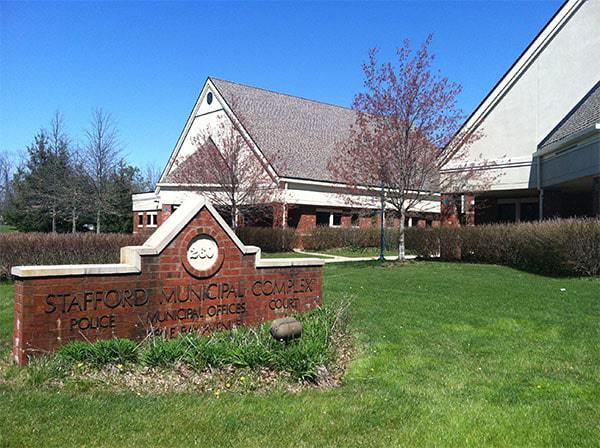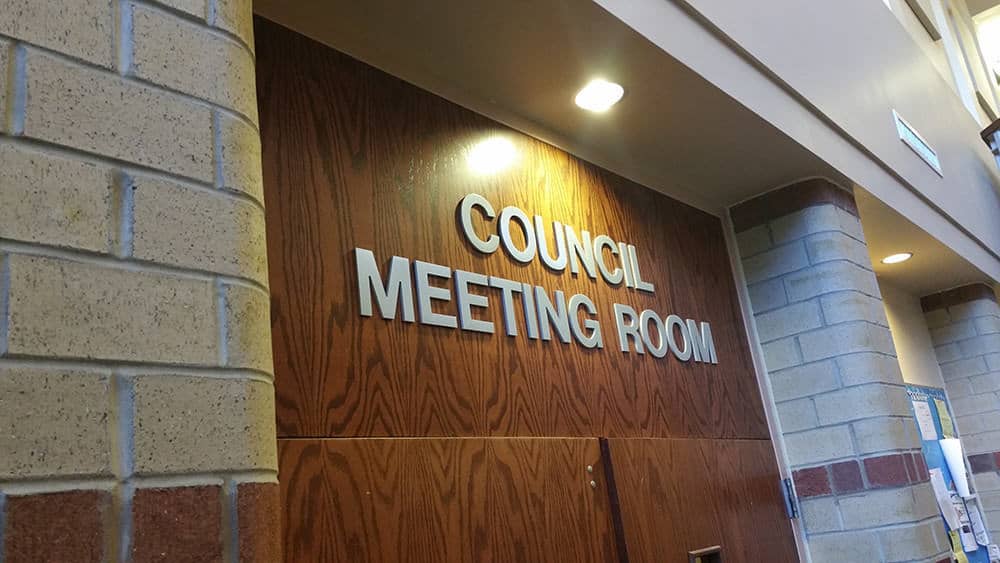
STAFFORD – The 2018 municipal budget was adopted, which increases spending, but also pays down debt to reduce future budgets.
Township administrator James Moran said that the town is in a good state of financial health and the budget features a reduction in debt of $45,521,332.83, in both the General Fund and Water/Sewer debt, since 2010, which is a remarkable feat.
While the budget is increasing from 2017 to 2018 by approximately 6.57 percent, Stafford is in much better shape now than it was years ago, according to Moran.
The 2018 budget is $48,863,886, with $37,019,621.56 to be raised by taxation. This is up $3,013,698 from 2017’s budget of $45,850,187, with $35,147,639 raised by taxation.
The vast majority of the budget revenue will come from local tax, weighing in at approximately 75 percent of the total budget revenue.
Budget revenue will also consist of:
- Surplus: $4,700,000
- Local revenue: $1,228,180
- Special items of revenue: $2,184,212
- State aid: $2,606,872
- Uniform construction code fees: $625,000
- Receipts from delinquent taxes: $500,000.
Tax Rate
The tax rate for 2018 is 88.8 cents of $100 assessed valuation, compared to 2017’s 90.1 cents per $100 of assessed valuation. “It’s a 1.5 percent reduction,” said Moran.
Despite the increase in the overall amount raised by taxation from 2017 to 2018 (approximately $1,871,983 increase), the tax rate has decreased due to a reassessment in the township.
“We have a much higher value,” said Moran. “We went from $3.9 billion to almost $4.2 billion; when you reassess you have the ability to drop the tax rate.”
Stafford Township is reassessed in sections to represent the new assessment and new rate for different neighborhoods.
For example, the average assessed value for Ocean Acres homeowners went from $219,599 in 2017 to $229,840.97 in 2018. Between an estimated $1,978 average paid in taxes in 2017 by the average Ocean Acres resident, and an estimated average of $2,040.99 paid in taxes for 2018, Ocean Acres residents can expect their taxes to increase by approximately $62.40.
This rate increase (or decrease) varies according to which section of the township you live in, as some areas are more expensive to reside in than others.

State Mandated CAPs
“There are two different caps that we have to work within…the expenditure cap and the other one’s called the levy cap,” said Moran. “One deals with just how much money we’re permitted to spend in total [expenditure cap], the other deals with how much money we’re permitted to raise in taxes in total [levy cap]…We’re $2.8 almost $2.9 million under our permitted expenditure [cap].”
The state imposed expenditure cap is $38,944,693.29, and Stafford’s expenditures for the 2018 budget ring in at $36,052,555.42. This leaves the township $2,892,137.87 under the expenditure cap proposed by the state.
The same idea applies to the state imposed revenue/levy cap. Limiting the township to $37,870,418.00, Stafford is under the cap by $850,796 with a total township levy of $37,019,622.
Moran noted that debt service and reserve for uncollected taxes are not included in cap calculations, which is why the expenditure cap is listed as $36,052,555.42 while the total budget expenditures are listed as $48,863,886.
“We’ve been below [the levy cap] for several years,” said Moran. “We strive to keep the levy down; you’ve got to be responsible because obviously what you do this year affects what happens next year.”
Moran emphasized that Stafford negotiates contracts that are below the state’s 2 percent cap.
“We’ve eliminated longevity from all of our contract negotiations…[and] we are 35 people leaner than we were eight years ago,” he explained.
This “smart hiring” has had a huge and positive impact on the budget in recent years.
“We work hard to keep our other costs down, but what most people don’t understand is that if our operating budget is $36, $37 million, once I pay for personnel, benefits, pensions, social security, I’m up to $31 or $32 million,” said Moran.
He explained that a majority of the spending is out of the hands of the governing body, such as health insurance premiums, which are dictated to him. Once necessities are paid for, Moran has only about $2 million that he can work with
Fund Balance Explained
Moran explained that the fund balance (surplus) should be used for the truly unexpected, or for the item that will provide long-term use before it needs replacing.
“We are actually using $900,000 in surplus for the purchase of three garbage trucks,” this year, he added. “I’m going to get 15 years out of a truck; so theoretically, I have 15 years to save $1 million to buy three more trucks.”
He likened the process to owning a home and paying a mortgage out of your savings account. “You’re not living within your means; you’re living within your means, plus your savings account.”
Although the township could technically use the fund balance to buy tax relief for one year, the fund balance will no longer exist to provide the same relief the following year, which will cause taxes to go back up.
Getting Out Of Debt
Stafford has eliminated $11,000 from Other Expenses (or O&E) since 2009, said Moran. It has also eliminated $47,000 from elections, $20,000 from legal, and $19,980 from the Municipal Clerk’s office, among other changes.
“We’re lower today than we were 10 years ago, and we’re functioning,” he said.
One of Stafford’s proudest accomplishments to date, according to Moran, is the $45,521,332.83 reduction in debt. “That means that we’ve reduced the debt in town by nearly a third in the last eight years,” he added.
Moran explained that he has about $9 million (sometimes closer to $11 million) allocated towards debt every year. Every year that the township puts $9 million towards its debt, “we’re getting closer to that $9 million becoming $6 million, $4 million…” he said.
Again, Moran likened the process to owning and operating your own house, noting that paying off the township’s debt is no different than paying off credit card or student loan debt. The idea is to pay off the debt as quickly as possible so that money can be saved or used for something else.
“The secret to financial health: saving, and elimination of debt,” said Moran. This is exactly what he has been directing the township to do, and he remarked that Stafford is heading toward a place of great financial health.






